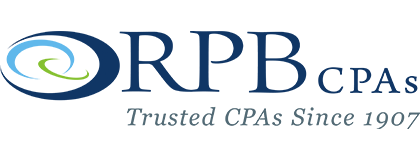General Newsletters
EBSA increases penalties for ERISA violations
Any employer that sponsors a pension plan or a qualified retirement plan, such as a 401(k), is undoubtedly familiar with the Employee Retirement Income Security Act (ERISA). The law also applies to employer-sponsored health maintenance organization plans, Flexible Spending Accounts, and life and disability insurance. Established in 1974, ERISA holds plan fiduciaries responsible for their actions related to the maintenance of applicable benefits plans. The Employee Benefits Security Administration (EBSA), an agency of the U.S. Department of Labor (DOL), is required by law to annually adjust ERISA penalties for inflation. This year, effective for penalties assessed after January 14, 2022, the
The 401(k) contribution limit will increase in 2022
The IRS recently announced that the amount individuals can contribute to their 401(k) plans will increase in 2022. The tax agency has also announced other cost‑of‑living adjustments affecting dollar limitations for pension plans and retirement-related items for tax year 2022. Let’s look at some highlights. Rising limit First and foremost, the contribution limit for employees who participate in 401(k), 403(b) and most 457 plans, as well as the federal government’s Thrift Savings Plan, will increase to $20,500. That’s up from $19,500 in 2020 and 2021. The catch-up contribution limit for employees age 50 and over who participate in the plans mentioned remains
Are you ready for the upcoming audit season?
An external audit is less stressful and less intrusive if you anticipate your auditor’s document requests. Auditors typically ask clients to provide similar documents year after year. They’ll accept copies or client-prepared schedules for certain items, such as bank reconciliations and fixed asset ledgers. To verify other items, such as leases, invoices and bank statements, they’ll want to see original source documents. What does change annually is the sample of transactions that auditors randomly select to test your account balances. The element of surprise is important because it keeps bookkeepers honest. Anticipate questions Accounting personnel can also prepare for audit
There’s currently a “stepped-up basis” if you inherit property — but will it last?
If you’re planning your estate, or you’ve recently inherited assets, you may be unsure of the “cost” (or “basis”) for tax purposes. The current rules Under the current fair market value basis rules (also known as the “step-up and step-down” rules), an heir receives a basis in inherited property equal to its date-of-death value. So, for example, if your grandmother bought stock in 1935 for $500 and it’s worth $1 million at her death, the basis is stepped up to $1 million in the hands of your grandmother’s heirs — and all of that gain escapes federal income tax. The
Many parents will receive advance tax credit payments beginning July 15
Eligible parents will soon begin receiving payments from the federal government. The IRS announced that the 2021 advance child tax credit (CTC) payments, which were created in the American Rescue Plan Act (ARPA), will begin being made on July 15, 2021. How have child tax credits changed? The ARPA temporarily expanded and made CTCs refundable for 2021. The law increased the maximum CTC — for 2021 only — to $3,600 for each qualifying child under age 6 and to $3,000 per child for children ages 6 to 17, provided their parents’ income is below a certain threshold. Advance payments will
Retiring soon? Recent law changes may have an impact on your retirement savings
If you’re approaching retirement, you probably want to ensure the money you’ve saved in retirement plans lasts as long as possible. If so, be aware that a law was recently enacted that makes significant changes to retirement accounts. The SECURE Act, which was signed into law in late 2019, made a number of changes of interest to those nearing retirement. You can keep making traditional IRA contributions if you’re still working Before 2020, traditional IRA contributions weren’t allowed once you reached age 70½. But now, an individual of any age can make contributions to a traditional IRA, as long as
Didn’t contribute to an IRA last year? There still may be time
If you’re getting ready to file your 2020 tax return, and your tax bill is higher than you’d like, there might still be an opportunity to lower it. If you qualify, you can make a deductible contribution to a traditional IRA right up until the April 15, 2021 filing date and benefit from the tax savings on your 2020 return. Who is eligible? You can make a deductible contribution to a traditional IRA if: You (and your spouse) aren’t an active participant in an employer-sponsored retirement plan, or You (or your spouse) are an active participant in an employer plan,
2021 individual taxes: Answers to your questions about limits
Many people are more concerned about their 2020 tax bills right now than they are about their 2021 tax situations. That’s understandable because your 2020 individual tax return is due to be filed in less than three months (unless you file an extension). However, it’s a good idea to acquaint yourself with tax amounts that may have changed for 2021. Below are some Q&As about tax amounts for this year. Be aware that not all tax figures are adjusted annually for inflation and even if they are, they may be unchanged or change only slightly due to low inflation. In
Need another PPP loan for your small business? Here are the new rules
Congress recently passed, and President Trump signed, a new law providing additional relief for businesses and individuals during the COVID-19 pandemic. One item of interest for small business owners in the Consolidated Appropriations Act (CAA) is the opportunity to take out a second loan under the Paycheck Protection Program (PPP). The basics The CAA permits certain smaller businesses who received a PPP loan to take out a “PPP Second Draw Loan” of up to $2 million. To qualify, you must: Employ no more than 300 employees per physical location, Have used or will use the full amount of your first PPP
Employees: Don’t forget about your FSA funds
Many employees take advantage of the opportunity to save taxes by placing funds in their employer’s health or dependent care flexible spending arrangements (FSAs). As the end of 2020 nears, here are some rules and reminders to keep in mind. Health FSAs A pre-tax contribution of $2,750 to a health FSA is permitted in both 2020 and 2021. You save taxes because you use pre-tax dollars to pay for medical expenses that might not be deductible. For example, they wouldn’t be deductible if you don’t itemize deductions on your tax return. Even if you do itemize, medical expenses must exceed



